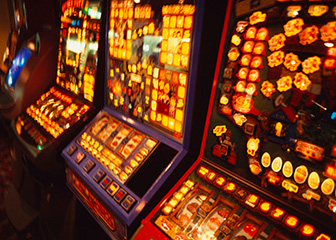How to Become a Gaming Services Worker About this section

Dealers should have good customer service skills.
Most gaming jobs require a high school diploma or a GED. However, the most important quality in a gaming worker is customer service skills.
Education
Gaming dealers, supervisors, sports book writers and runners, and slot supervisors typically need a high school diploma or a GED. Gaming managers typically take formal management classes, although many of them do not need a postsecondary degree. Those who choose to pursue a degree may study hotel management or gaming management programs that lead to certificates or degrees that some colleges offer.
Training
Individual casinos or other gaming establishments have their own training requirements. Usually, new gaming dealers are sent to gaming school for 4 to 8 weeks to learn a casino game, such as blackjack or craps. These schools teach the rules and procedures of the game, as well as state and local laws and regulations related to the game. Gaming school is not just for new employees: dealers who have been employed for many years have to go to gaming school if they want to be trained in a new casino game. Completing gaming school before being hired may increase a prospective dealer’s chances of being hired, but it does not guarantee a job. Casinos usually audition prospective dealers for open positions to assess their personal qualities.
Gaming and sports book writers and runners usually do not have to go to gaming school. They can be trained by the casino in less than 1 month. The casino teaches them state and local laws and regulations related to the game, as well the particulars of their job, such as keno calling.
Licenses
Gaming services workers must be licensed by a state regulatory agency, such as a state casino control board or gaming commission. Applicants for a license must provide photo identification and pay a fee. They must also pass a background check and drug test. Age requirements vary by state.
Work Experience
Gaming and slot supervisors usually have several years of experience working in a casino. Gaming supervisors often spend time as a dealer or in the customer outreach arm of the casino. Slot supervisors also usually begin in low-level marketing jobs or customer service. They may have experience as a gaming dealer or slot technician.
Gaming managers are often promoted from positions as slot or gaming supervisors. They may also be moved from a management job in another portion of the resort, such as hospitality, after learning about casino operations.
Advancement
Gaming dealers can advance to gaming supervisors and eventually managers. A slot supervisor can also advance to gaming manager.
Important Qualities
Customer-service skills. All gaming jobs involve a lot of interaction with customers. The success or failure of a casino depends on how customers view the casino, making customer service important for all gaming services occupations.
Leadership skills. Gaming managers and supervisors oversee other gaming services workers and must be able to guide them in doing their jobs.
Math skills. Because they deal with large amounts of money, many casino workers must be good at math.
Organizational skills. Gaming managers and supervisors must be well organized to handle administrative and other tasks required in overseeing gaming services workers.
Patience. All gaming workers have to be able to keep their composure when they handle a customer who becomes upset or breaks a rule.
Speaking skills. Dealers and gaming writers and runners must be able to explain the rules of the game to customers and answer any questions they have. Simple misunderstandings can cost a customer a lot of money and damage the reputation of the casino.










